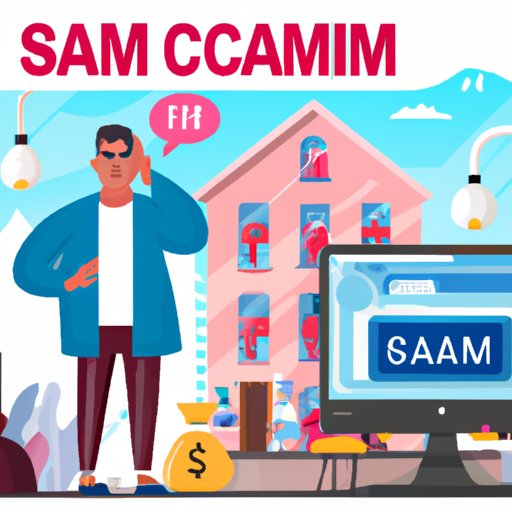How to Get a Scammer in Trouble: A Guide for Victims
Scammers are everywhere, from the internet to the streets, and their schemes can range from simple scams to more complex ones that appear legitimate. These fraudsters can ruin people’s lives both financially and emotionally. Fortunately, there are ways to fight back and get them in trouble. This article will provide a guide for victims on how to get a scammer in trouble.
Reporting a Scammer to Law Enforcement
Reporting a scam to law enforcement is one of the most important steps in getting a scammer in trouble. Victims should gather all evidence related to the scam, such as emails, phone numbers, and any other related materials. They should then file a complaint with their local police department, or relevant authorities if the scam is international. When filing the complaint, victims should provide their personal information and any evidence they have.
It’s important to use a secure computer and be aware of scams posing as law enforcement. Scammers may pretend to be law enforcement officials and request personal information from victims. To avoid falling victim to this, victims should always verify the legitimacy of the person they are communicating with.
Working with a Consumer Protection Agency
Victims can also partner with a consumer protection agency to get a scammer in trouble. Consumer protection agencies have resources and expertise to help victims of scams. They can investigate the scam and help victims recover their losses.
Victims should research and identify a reputable consumer protection agency and then contact them for help. This way, they can learn about the resources available and how the consumer protection agency can help them.
Hiring a Private Investigator
If a victim can afford it, hiring a private investigator can be a valuable tool in locating and exposing a scammer. Private investigators have specialized skills and knowledge and can use techniques like surveillance, background checks, and forensic analysis to gather evidence against the scammer.
Before hiring a private investigator, victims should ensure they are qualified and experienced. This way, they can be confident that the investigator can do the job properly.
Using Online Resources to Identify Scammers
Victims can also use free online resources available to identify scammers. These resources include scam reporting websites, forums, and other information sources.
By using these resources, victims can research and investigate potential scammers. However, they should also be aware of scams that masquerade as legitimate websites. Victims should exercise caution and avoid scams that require personal information or money.
Bringing a Scammer to Justice Through Legal Action
Victims may also consider taking legal action to bring a scammer to justice. This can include filing a lawsuit or hiring a lawyer. It’s important to consider the complexity of the case and the likelihood that the scammer will be found guilty.
During the legal process, it’s important to document all interactions with the scammer and stay in communication with the lawyer to protect oneself.
Conclusion
Getting a scammer in trouble is a difficult and at times complicated process, but it’s important for victims to hold scammers accountable for their actions. Reporting to law enforcement, working with a consumer protection agency, hiring a private investigator, using online resources, and taking legal action are all viable options for victims. Victims should use several resources and be persistent in bringing scammers to justice.
For more information and help with dealing with scammers, victims can consult the appropriate authorities or consumer protection agencies.
